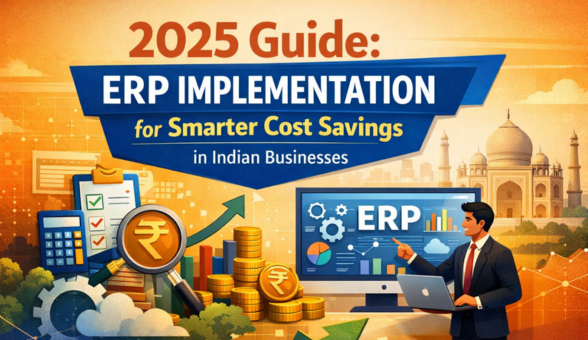How to Create an Online E-commerce Website for Herbal Products
In the wake of a global shift towards natural and holistic health solutions, the demand for herbal products has seen an unprecedented surge.
Today, consumers are increasingly turning to the internet to source herbal remedies, making the online herbal product market a lucrative niche for entrepreneurs. With the global herbal supplement market projected to reach $8.5 billion by 2025, establishing an online e-commerce website for herbal products is not just timely but essential.
In response to this growing trend, India has emerged as a key player, with its rich heritage in Ayurvedic and herbal remedies offering a competitive edge in the global market.
This presents a unique opportunity for Indian entrepreneurs to leverage local resources and knowledge, catering to both domestic and international consumers seeking quality, authenticity, and effectiveness in herbal solutions.
1. Understanding the Herbal Products Market
2. Planning Your Herbal E-commerce Venture
3. Legal Considerations for Selling Herbal Products Online
4. Building Your Herbalife E-commerce Website
5. Designing Your Online Herbal Store
6. Inventory Management and Supplier Relations
7. Integrating Payment Solutions
8. Shipping and Fulfillment Strategies
9. Marketing Your Herbal Products Online
10. Engaging Your Customers and Building Trust
11. Monitoring and Enhancing Your E-commerce Site
12. Wrapping Up Your Herbal E-commerce Journey
1. Understanding the Herbal Products Market
The herbal products market encompasses a wide range of items, from medicinal herbs and natural focus supplements to organic health and wellness solutions.
This market’s growth is driven by a growing awareness of health and wellness and a preference for natural over synthetic products. Identifying your target audience is crucial; whether it’s health-conscious individuals, those with specific health conditions, or fitness enthusiasts looking for natural supplements, understanding your market will guide your product selection and marketing strategy.
In India, brands like Himalaya Wellness have successfully tapped into this market, offering a comprehensive range of herbal healthcare products that cater to a wide audience, from general wellness to specific health conditions.
Their success underscores the importance of quality, trust, and brand reputation in attracting and retaining customers in the herbal products space.
2. Planning Your Herbal E-commerce Venture

Deciding on the range of products to offer involves a careful evaluation of market demand and supply chain logistics.
Will you focus on popular herbal supplements like turmeric and ashwagandha, or niche products such as rare medicinal herbs? Sourcing high-quality, certified herbal products is paramount to ensure customer safety and trust.
For instance, partnering with local organic farms or reputable suppliers like Herbalife can provide a steady supply of high-quality ingredients.
Additionally, considering the integration of Ayurvedic herbs into your product lineup could appeal to a broad segment of consumers looking for traditional and holistic health solutions, further expanding your market reach and differentiating your brand in the competitive online landscape.
Establishing direct relationships with cultivators of herbs like Tulsi, Neem, and Brahmi can also ensure the authenticity and purity of your offerings, enhancing your e-commerce venture’s credibility.
3. Legal Considerations for Selling Herbal Products Online
As per the National Institute Of Health In India, The herbal product regulations fall under the Drug and Cosmetic Act (D&C) 1940 and its rules, overseen by the Department of AYUSH.
To manufacture or market herbal products, businesses must obtain a manufacturing license from the FDA (Food and Drug Administration), adhering to guidelines that cover licensing, product formulation, labeling, and quality standards. Schedule “T” of the act specifies Good Manufacturing Practices (GMP) for herbal medicines, ensuring product safety and efficacy.
The act also lists authorized texts for Ayurveda, Siddha, and Unani (ASU) drugs, alongside patent or proprietary medicines, guiding the licensing and quality assurance of herbal products.
4. Building Your Herbal E-commerce Website
Choosing the right e-commerce platform is critical for the success of your online store. Platforms like Boomimart, WooCommerce, and Magento offer the flexibility and features needed to sell herbal products effectively.
Boomimart stands out by providing specialized e-commerce solutions tailored for herbal and wellness businesses, ensuring that your website includes essential features such as a comprehensive product catalog, a shopping cart, seamless payment gateway integration for secure transactions, and user registration for a personalized shopping experience.
Selecting an e-commerce platform that aligns with your business goals can significantly impact your store’s operational efficiency and customer satisfaction.
Boomimart platform not only facilitates the sale of products but also enhances the shopping experience through advanced analytics enabling businesses to grow and adapt in the competitive online marketplace.
Plan Your Herbal Store
5. Designing Your Online Herbal Store
Your website’s design should reflect the natural and organic ethos of your product line.
A clean, user-friendly interface that is mobile-responsive will ensure that customers have a positive shopping experience, regardless of the device they use.
High-quality images and detailed product descriptions will help customers understand the benefits and uses of each product, enhancing the likelihood of purchase.
Incorporating elements such as earthy tones, nature-inspired visuals, and easy navigation can further emphasize the herbal and organic nature of your products, creating a cohesive and appealing online presence.
Additionally, integrating features like customer reviews, blogs related to herbal remedies, and health tips can provide added value to your customers, encouraging engagement and repeat visits.
A great example of this approach is the Indian online store, Banyan Botanicals, which successfully combines traditional Ayurvedic knowledge with a modern digital shopping experience, offering customers a rich, informative, and visually stunning online environment to explore their natural product range.
6. Inventory Management and Supplier Relations
Efficient inventory management is crucial for the seamless operation of your online herbal store.
Utilizing sophisticated inventory management systems like Boomimart can help you keep track of stock levels, manage supplier relations, and ensure that your product offerings, from medicinal herbs to natural focus supplements, are always available to meet customer demand.
Establishing strong relationships with reputable suppliers ensures a consistent supply of high-quality products, which is crucial for maintaining customer trust and satisfaction.
Diversifying your supplier base can also mitigate risks associated with supply chain disruptions and allow you to offer a wider range of products, catering to the varied preferences of your customers.
This strategic approach to supplier relations not only enhances your inventory variety but also strengthens your market position by enabling quick adaptation to consumer trends and demands.
7. Integrating Payment Solutions
To cater to a broad customer base, your online store must integrate secure and flexible payment solutions. Offering a variety of payment methods, including credit/debit cards, online banking, digital wallets, and UPI, ensures that every customer can transact in a way that’s most convenient for them.
Payment gateway integration with trusted providers like Razorpay, Paytm, PayU, and CCAvenue enhances the security and efficiency of online transactions, providing customers with peace of mind.
Additionally, incorporating newer payment technologies such as QR code payments can further simplify the checkout process, making it faster and more user-friendly for customers, thereby improving their overall shopping experience and potentially increasing conversion rates for your store.
8. Shipping and Fulfillment Strategies
The success of your online herbal products store also depends on your shipping and fulfillment strategies. Partnering with reliable logistics providers ensures that your products, from delicate herbs to bulky gardening tools, are delivered promptly and in excellent condition.
Implementing a system for order tracking and providing customers with regular updates can significantly enhance the shopping experience.
Additionally, leveraging the services of established couriers like DTDC and India Post, known for their extensive reach across India, can be particularly beneficial for shipping herbal products.
DTDC offers specialized packaging and handling for delicate items, ensuring they arrive safely, while India Post’s vast network makes it an economical choice for reaching remote areas, ensuring that your herbal products can be delivered to customers no matter where they are located.
9. Marketing Your Herbal Products Online
Digital marketing is a powerful tool to attract and engage customers. Utilize SEO strategies to improve your site’s visibility for relevant keywords, and leverage social media platforms to showcase your products and share valuable content related to herbal remedies and wellness.
Platforms like Instagram, with over 1 billion active users, are particularly effective for visually showcasing your herbal products and engaging with a health-conscious audience.
Email marketing campaigns can also be effective in promoting new products, sharing special offers, and keeping your brand top-of-mind among your customers.
10. Engaging Your Customers and Building Trust
Building a loyal customer base requires more than just high-quality products; it requires engaging with your customers and earning their trust. Encourage customer reviews and testimonials, which can be featured on your website to provide social proof.
Additionally, offering excellent customer service, including easy returns and exchanges, can further enhance trust and loyalty. Engaging customers through interactive content, such as wellness blogs, herbal remedy tutorials, and live Q&A sessions, can also foster a community around your brand.
A real Indian example of this approach is Organic India, which has effectively cultivated a dedicated following by promoting its organic herbal products alongside a strong commitment to sustainability and health education, demonstrating the power of aligning brand values with customer engagement strategies.
11. Monitoring and Enhancing Your E-commerce Site
Regularly monitoring your website’s performance is essential for identifying areas for improvement. Use analytics tools to track visitor behavior, conversion rates, and other key metrics.
Based on these insights, continuously optimize your website’s design, user experience, and product offerings to better meet the needs of your target audience.
Integrating with Boomimart can significantly streamline this process, as it offers comprehensive analytics and reporting features designed to enhance e-commerce operations. This allows for a deeper understanding of customer interactions and preferences, enabling more targeted and effective enhancements to your online herbal store.
12. Wrapping Up Your Herbal E-commerce Journey
Launching an online e-commerce website for herbal products offers a unique opportunity to tap into a growing market of health-conscious consumers.
By carefully selecting your niche, sourcing high-quality products, and implementing effective online marketing strategies, you can build a successful online business.
Remember, the key to success in the competitive e-commerce landscape is to stay adaptable, continuously engage with your customers, and always strive for excellence in every aspect of your operation.



